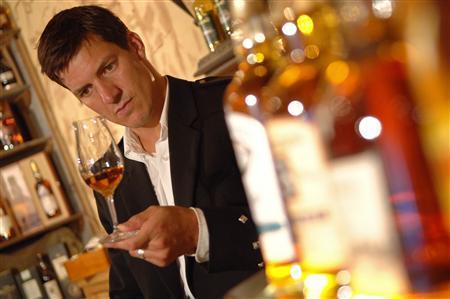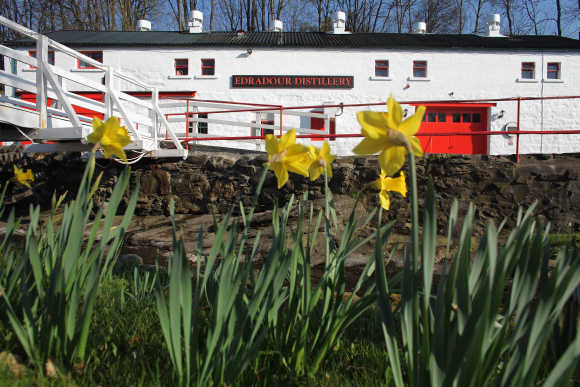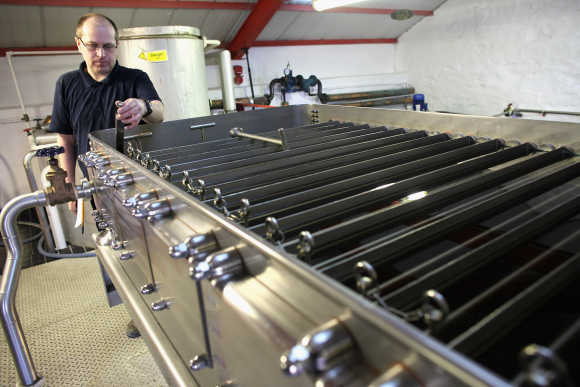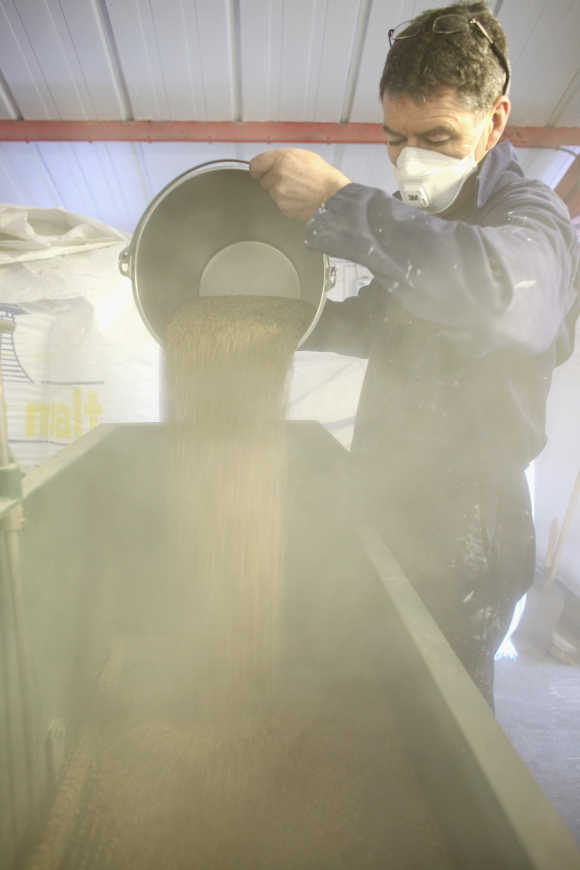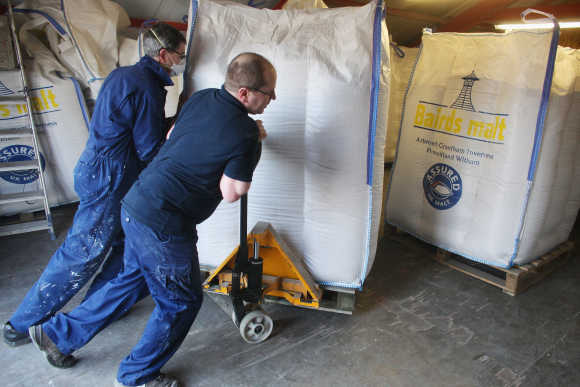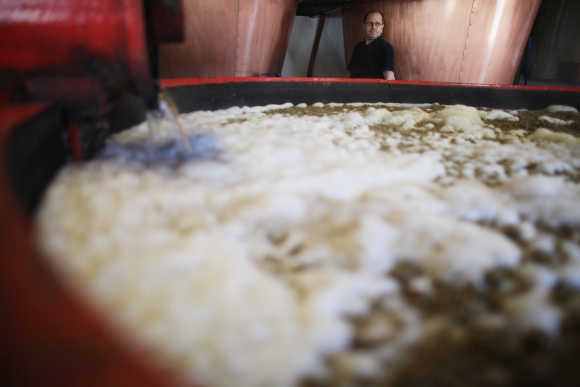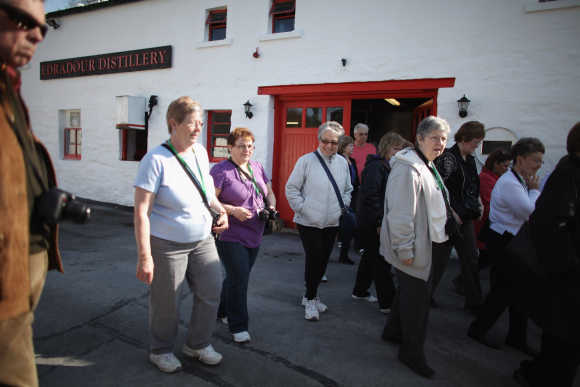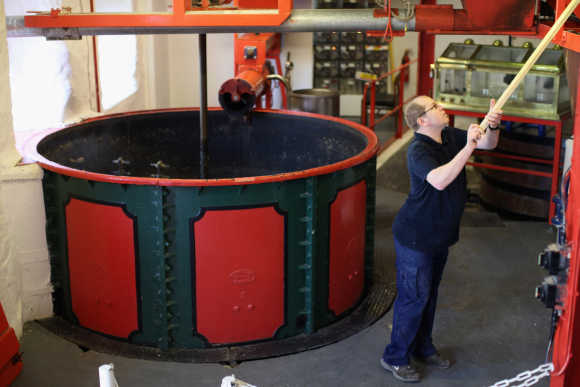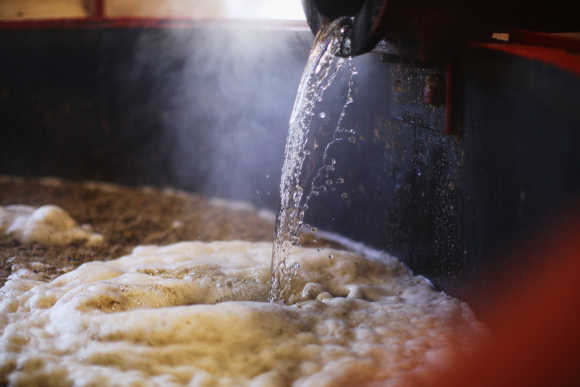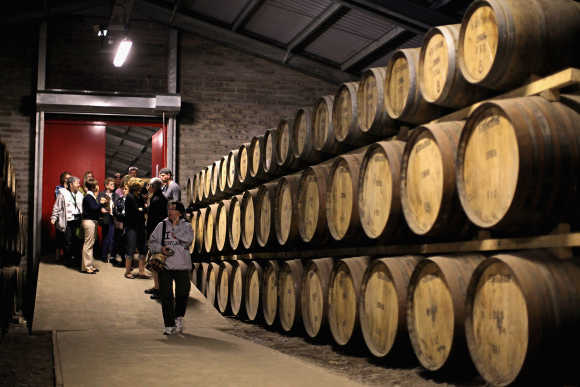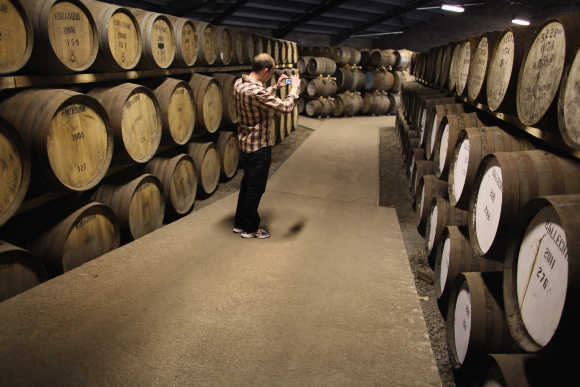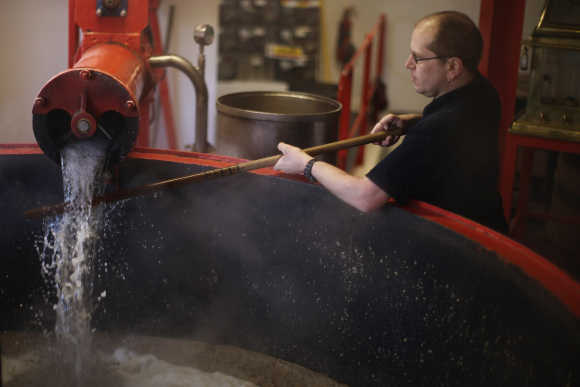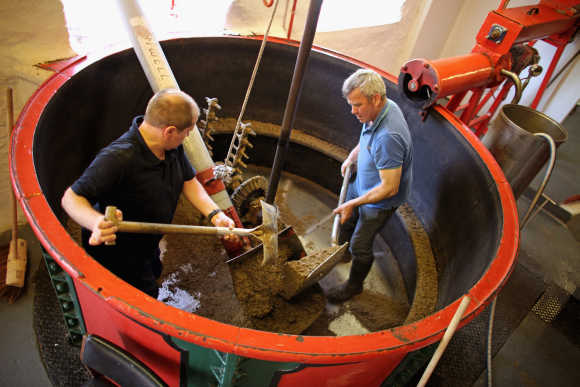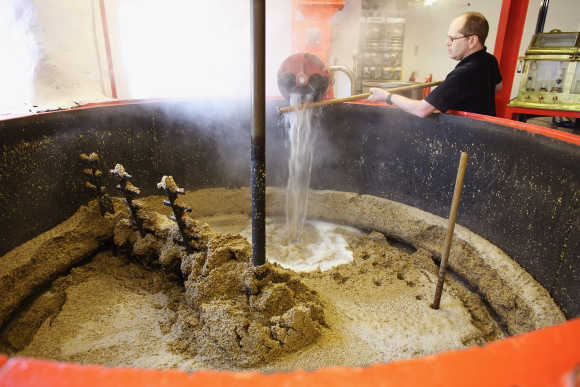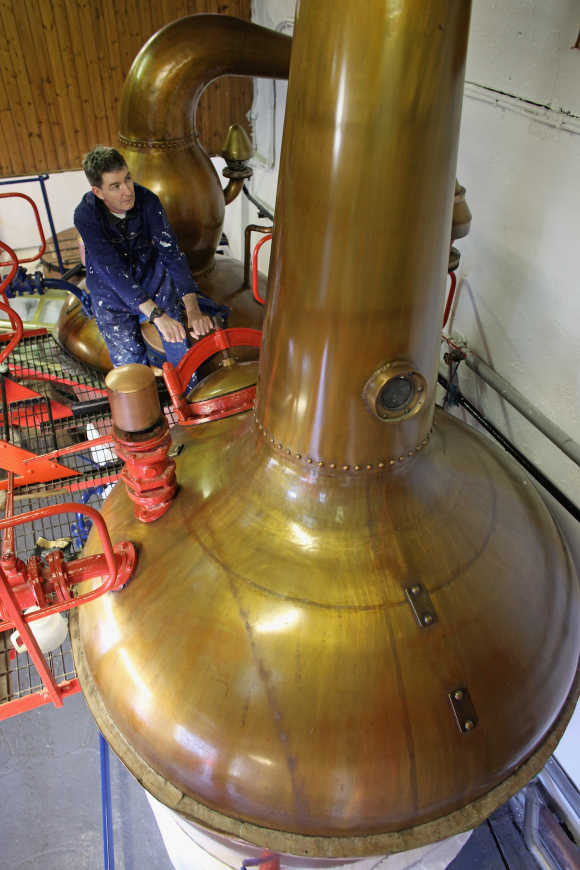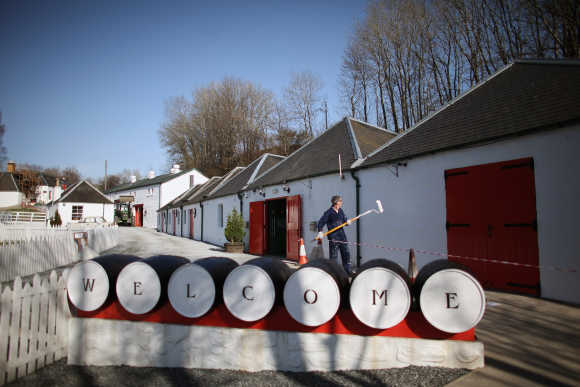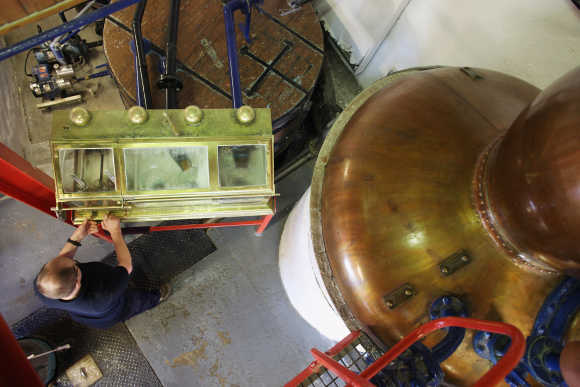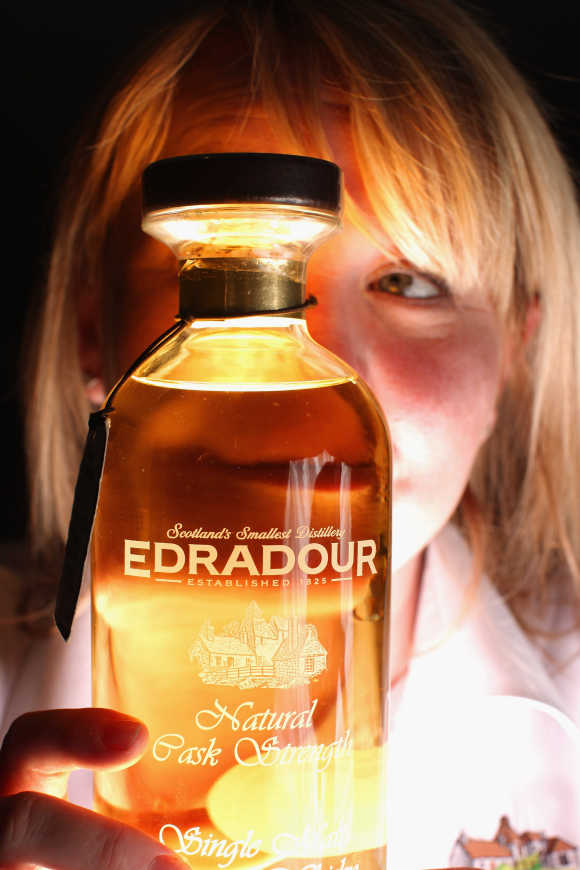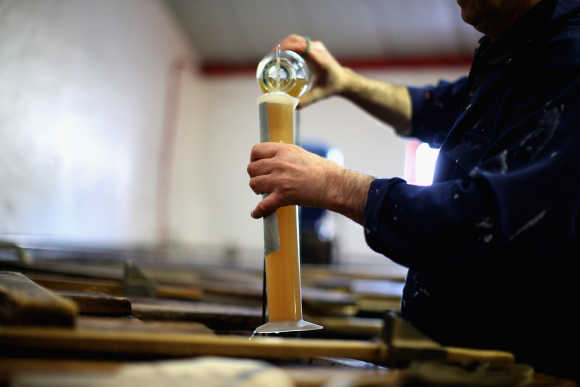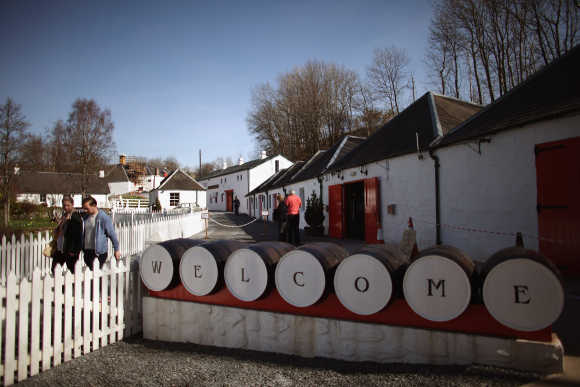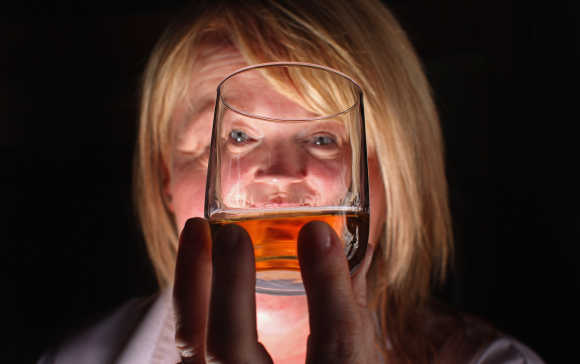 | « Back to article | Print this article |
A look at how whisky is made
Whisky, or whiskey, is one of the most popular alcoholic drinks in the world.
Let's take a look at how it is created.
A look at how whisky is made
Whisky, or whiskey, is a type of distilled alcoholic beverage made from fermented grain mash. Different grains are used for different varieties, including barley, malted barley, rye, malted rye, wheat, and corn.
Click NEXT to read more...
A look at how whisky is made
Whisky is typically aged in wooden casks, made generally of charred white oak.
Click NEXT to read more...
A look at how whisky is made
Whisky is a strictly regulated spirit worldwide with many classes and types. The typical unifying characteristics of the different classes and types are the fermentation of grains, distillation, and ageing in wood.
Click NEXT to read more...
A look at how whisky is made
Much is made of the word's two spellings: whisky and whiskey. There are basically two schools of thought on the issue.
One is that the spelling difference is simply a matter of local language convention for the spelling of a word, indicating that the spelling will vary depending on the background or personal preferences of the writer.
Click NEXT to read more...
A look at how whisky is made
The other is that the spelling should depend on the style or origin of the spirit that is being described. But there is general agreement that when quoting the proper name printed on a label, the spelling that is used on the label should not be altered.
Click NEXT to read more...
A look at how whisky is made
Whisky or whisky-like products are produced in most grain-growing areas. They differ in base product, alcoholic content, and quality.
i) Malt whisky is made primarily from malted barley.
ii) Grain whisky is made from any type of grains.
Click NEXT to read more...
A look at how whisky is made
Single malt whisky is whisky from a single distillery made from a mash that uses only one particular malted grain. Unless the whisky is described as "single-cask", though, it will contain whisky from many casks, and different years, so the blender can achieve a taste recognisable as typical of the distillery.
Click NEXT to read more...
A look at how whisky is made
Blended malt whisky is a mixture of single malt whiskies from different distilleries. If a whisky is labelled "pure malt" or just "malt" it is almost certain to be a blended malt whisky.
This was formerly called a "vatted malt" whisky.
Click NEXT to read more...
A look at how whisky is made
Blended whiskies are typically made from a mixture of malt and grain whiskies - often along with neutral spirits, caramel, and flavouring.
A whisky simply described as a Scotch, Irish, or Canadian whisky is most likely to be a blend.
Click NEXT to read more...
A look at how whisky is made
Blended whiskies are typically made from a mixture of malt and grain whiskies - often along with neutral spirits, caramel, and flavouring. A whisky simply described as a Scotch, Irish, or Canadian whisky is most likely to be a blend.
Click NEXT to read more...
A look at how whisky is made
A blend typically contains whisky from many distilleries so that the blender can produce a flavour consistent with the brand, and the brand name.
Click NEXT to read more...
A look at how whisky is made
Cask strength (also known as barrel-proof) whiskies are rare, and usually only the very best whiskies are bottled in this way. They are bottled from the cask undiluted or only lightly diluted.
Click NEXT to read more...
A look at how whisky is made
Single cask (also known as single-barrel) whiskies are usually bottled by specialist independent bottlers, such as Duncan Taylor, Gordon & MacPhail, and Kentucky Bourbon Distillers, among others.
Click NEXT to read more...
A look at how whisky is made
Each bottle of a single-barrel whisky is from an individual cask, and often the bottles are labelled with specific barrel and bottle numbers. The taste of these whiskies may vary substantially from cask to cask within a brand.
Click NEXT to read more...
A look at how whisky is made
Whiskies do not mature in the bottle, only in the cask, so the "age" of a whisky is only the time between distillation and bottling.
Click NEXT to read more...
A look at how whisky is made
This reflects how much the cask has interacted with the whisky, changing its chemical makeup and taste.
Click NEXT to read more...
A look at how whisky is made
Whiskies that have been bottled for many years may have a rarity value, but are not "older" and will not necessarily be "better" than a more recently made whisky matured in wood for a similar time.
After a decade or two, additional aging in a barrel will also not necessarily make a whisky "better".
Click NEXT to read more...
A look at how whisky is made
Most whiskies are sold at or near an alcoholic strength of 40 per cent abv, which is the statutory minimum in some countries - although the strength can vary, and cask-strength whiskey may have as much as twice that alcohol percentage.
Click NEXT to read more...
A look at how whisky is made
American whiskey is distilled from a fermented mash of cereal grain. It must have the taste, aroma, and other characteristics commonly attributed to whiskey.
Click NEXT to read more...
A look at how whisky is made
The majority of Indian whiskies are blends with a small amount of grain whisky blended with neutral spirits distilled from fermented molasses, and as such could be considered a sort of rum, although pure grain whiskies are available.
